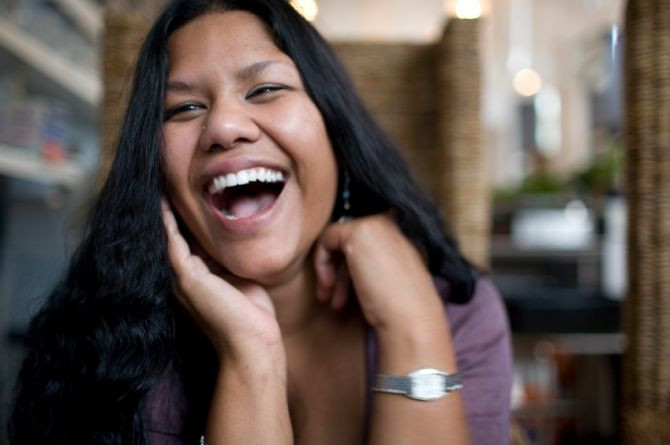Overconfidence May Be a Result of Social Politeness

In every office, standing by the water cooler, there is a person. Let's call him Joe. Joe tells stories about his weekend, followed by jokes about his in-laws, and everyone politely laughs as they shuffle around him to get their cup of water. "Why does Joe continue telling these jokes?" everyone wonders.
Because of you. Because you are laughing, Joe thinks that he's funny. Joe is your creation.
It's not entirely your fault though. Joyce Ehrlinger from Florida State University has researched this very phenomenon which has led her to present a paper called "Polite But Not Honest: How an Absence of Negative Social Feedback Contributes to Overconfidence" at the American Psychological Association's annual conference in Orlando on Friday.
Social norms, Ehrlinger says, are the reason that we are averse to giving negative feedback. Her research recreated everyday social situations in which we hold back from giving our own negative views.
Since society has taught us not to hurt other people's feelings, we rarely hear the truth about ourselves, even when we really deserve it. And sometimes that politesse can have negative ramifications.
Ehrlinger, along with two graduate students, Adam J. Fay and Joanna Goplen, conducted three studies on the matter. They hypothesized that, if a person expressed views to a political subject that their conversation partner found contradictory to their own, the result would not be a healthy debate, but just silence. They brought in study participants with opposite political views and would ask one to persuade the other on a subject, like marijuana legalization. The participants did not know one another previously. The respondent would typically reply with polite smiles and nods but would not actually change their minds, while the participant would leave the study with an overly inflated view of their debate and persuasion skills.
In a second study, participants were asked to tell jokes to others. The joke-tellers would leave with an overinflated view of their comedy skills, even though people were often laughing politely.
Ehrlinger said that there was nothing wrong with certain types of overconfidence, and certainly did not advocate the disintegration of a polite society. But, she added, overconfident doctors and lawyers could give patients and clients inaccurate advice, with disastrous results.
That is why there are certainly opportunities where politesse should be pushed aside, and truth is more important than social norms.



























